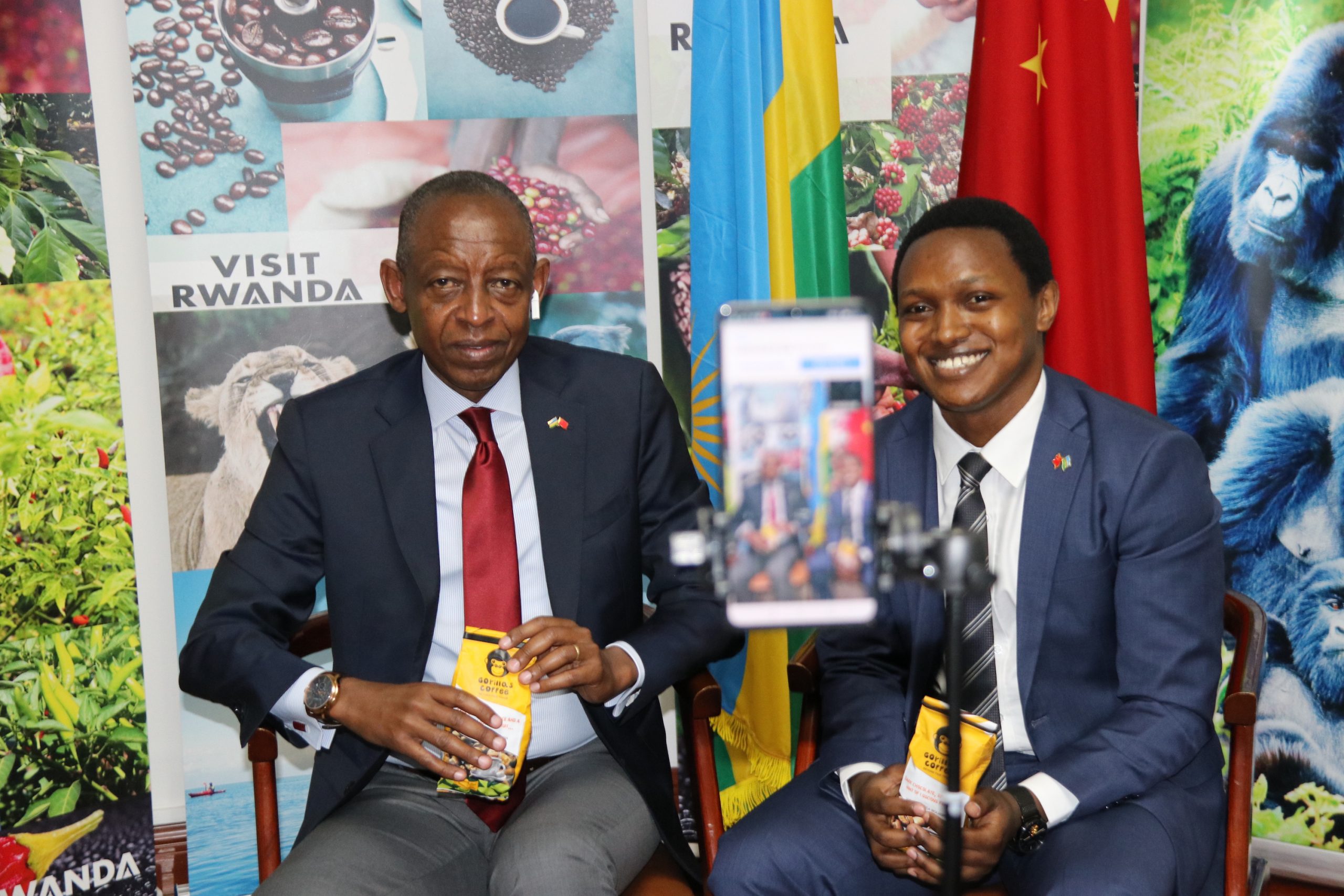
The Electronic World Trade Platform on Thursday joined forces with Alibaba Group’s cross-border e-commerce platform Tmall Global to help drive sales for global brands impacted by the Covid-19 pandemic.
The event was a special edition of “National Treasure,” a monthly livestream program produced by Tmall Global to introduce quality products from around the world to Chinese audiences. The eWTP helped connect global companies with the platform, giving them access to the resources and technologies available to reach and engage with consumers in China.
Among the brands featured was Gorilla’s Coffee from Rwanda. During its livestreaming session, the brand sold out its stock of 3,000 bags of coffee in just one second.
WATCH: Highlight of the livestreaming session
Gorilla’s Coffee CEO David Ngarambe said the company’s sales nosedived during the coronavirus pandemic as supply chains were ruptured and cafes and hotels were forced to close their doors. A sharp drop in flights worldwide also caused transportation costs of Rwandan coffee to more than double. Thanks to support from the eWTP, an Alibaba-led initiative that aims to lower barriers to global trade for small and medium-sized enterprises, Gorilla’s Coffee was able to not only reach large swathes of consumers but also generated enough sales to qualify for more reasonable freight rates.
“We want to support SMEs worldwide to recover from the outbreak, resume production and secure orders in their times of need with digital technologies,” said Eric Jing, Alibaba Group director and executive chairman of Ant Group, who joined the stream to rally support for brands like Gorilla’s Coffee. “Through today’s livestream, we look forward to reopening global trade, starting with helping businesses reopen.”

Also present was Vera Songwe, under-secretary-general of the United Nations and executive secretary of the Economic Commission for Africa, and Rwanda’s Ambassador to China James Kimonyo, as well as trade officials from Chile and Belgium, who promoted their local cultures and products on the program.
In a prerecorded video, Songwe expressed hopes to bring more African produce to other markets via the eWTP and stressed the importance of revitalizing global trade.
“At a time when the world is closing down, it is particularly important that we continue with trade because that’s the only way we can build a prosperous world and a prosperous Africa,” Songwe said. “We believe that with the opening up of the Electronic World Trade Platform to more countries of the continent, we can do more together to ensure that no one is left behind from the Covid-19 crisis.”
This was not the first time the eWTP activated resources across Alibaba’s ecosystem to support farmers and small businesses overseas. Last June, it helped Malaysian suppliers bring frozen whole Musang King durians to China through the company’s platforms for the first time, allowing Chinese consumers on e-commerce site Tmall and grocery chain Freshippo to be among the first to purchase the durians during Alibaba’s 6.18 Shopping Festival. In January, it worked with Freshippo to launch a new Volcanic Hunter hot sauce made from chilies purchased in bulk from Rwandan farmers. It refined the sauce’s flavor to cater to the tastes of Chinese consumers and rolled out a branding campaign to promote the chilies.
WATCH: What is the eWTP?
First proposed by Alibaba Group founder Jack Ma in 2016, the eWTP has been recognized by the G20 and has launched in China, Malaysia, Belgium, Rwanda and Ethiopia. The private sector-led, multi-stakeholder initiative offers SMEs easier access to new markets via simple and straightforward regulations. It also offers training and support in areas such as e-commerce, logistics, financing, cloud computing and mobile payments.
Sign up for our newsletter to receive the latest Alibaba updates in your inbox every week.




